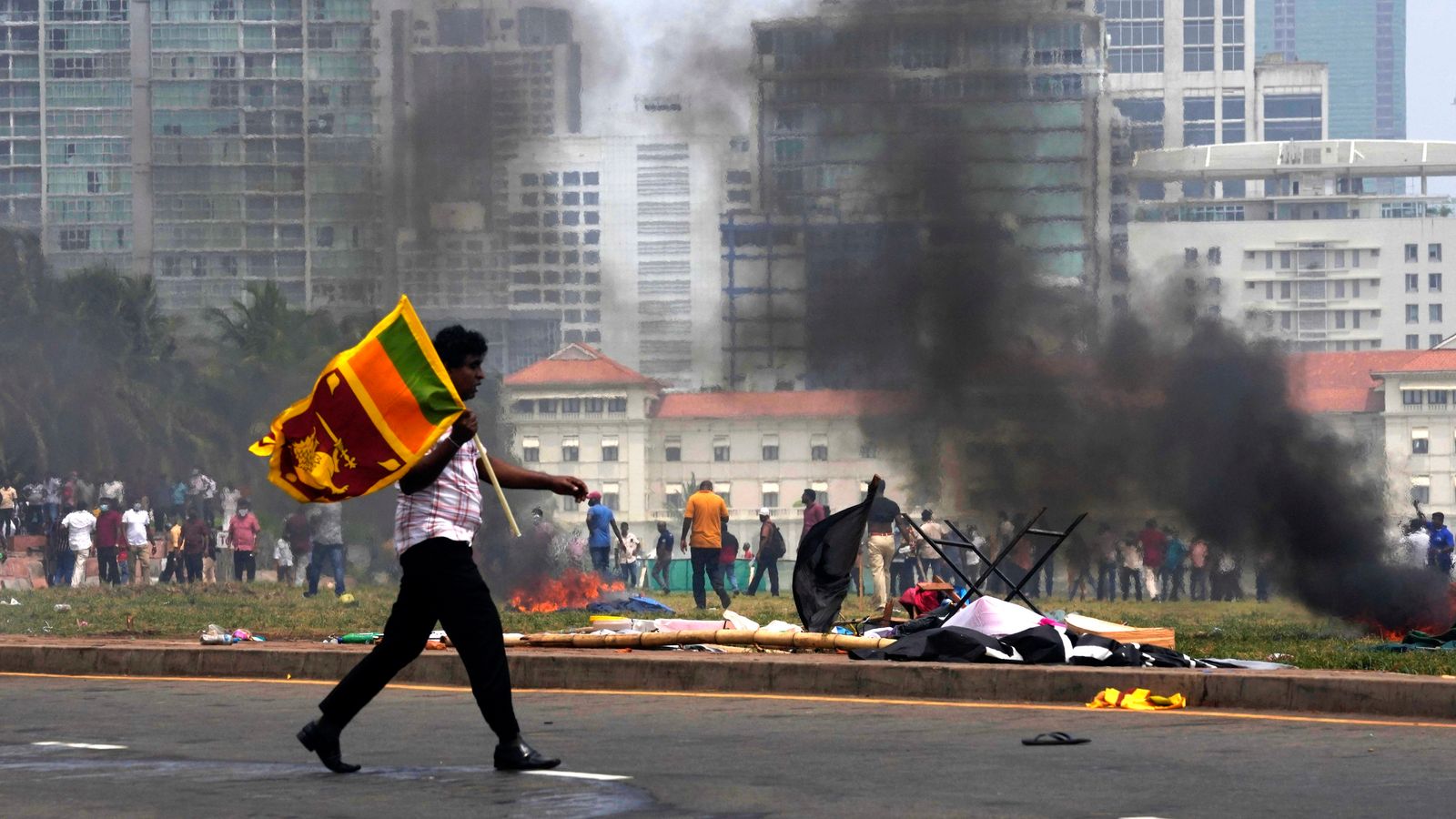COLOMBO: An IMF delegation arrives in Sri Lanka on Monday for talks on a rescue programme, but time is running out for the country that is just days away from running out of petroleum and possibly months away from receiving any relief money.
Despite decades of economic mismanagement and recent policy blunders, Sri Lanka’s foreign reserves have shrunk to record lows because of COVID-19’s devastating impact on tourism and remittances.
In April, the 22-million-strong island nation stopped the payment of a $12 billion debt.
Sri Lankan troops open fire on rioters in an effort to control the situation.
According to the United Nations, rising inflation and currency devaluation are leading to a humanitarian crisis.
This will be Sri Lanka’s 17th rescue package, according to the IMF, whose staff is currently in Colombo and will stay until June 30.
“We reiterate our commitment to support Sri Lanka at this difficult time, in line with the IMF’s principles,” the global lender said in a statement.
IMF staff-level agreement and speedy IMF board disbursements are Colombo’s hopes during the IMF visit, which coincides with debt restructuring talks.
However, this normally takes months, and Sri Lanka is at risk of additional shortages and political turmoil.
Patrick Curran, a senior economist at the US investment research firm Tellimer, said that even if a staff-level agreement is reached, ultimate programme approval will be predicated on guarantees that official creditors, notably China, are willing to grant substantial debt relief.
Overall, the reorganisation will probably take a long time. But for the typical Sri Lankan, like autorickshaw driver Mohammed Rahuman, 64, who had to wait 16 hours for petrol recently, the crisis is already too much.
According to him, “They say petrol will come, but nothing has happened yet,” he said. “Things are quite challenging. I’m unable to work, I’m unable to return home, and I’m unable to sleep.” Since last week, kilometre-long lineups have formed outside most gas stations.
For the next two weeks, all urban public schools will be closed, and all government employees will be required to work from home. Bondholders are hoping that the IMF visit would shed light on Sri Lanka’s ability to repay its debts and what investors have to do.
Bondholder Capitulum Asset Management’s Lutz Roehmeyer said the IMF’s visit is critical since the government needs all the help and support it can receive.
Many overseas bondholders will need to meet in order to discuss a debt restructuring, and this is a major factor in their participation.
Ranil Wickremesinghe, Sri Lanka’s prime minister, indicated earlier this month that an IMF programme is necessary to get bridging funding from the World Bank and the Asian Development Bank.
Financial and legal consultants from Sri Lanka’s government have arrived in Colombo.
Works at The Truth International Magazine. My area of interest includes international relations, peace & conflict studies, qualitative & quantitative research in social sciences, and world politics. Reach@ [email protected]










